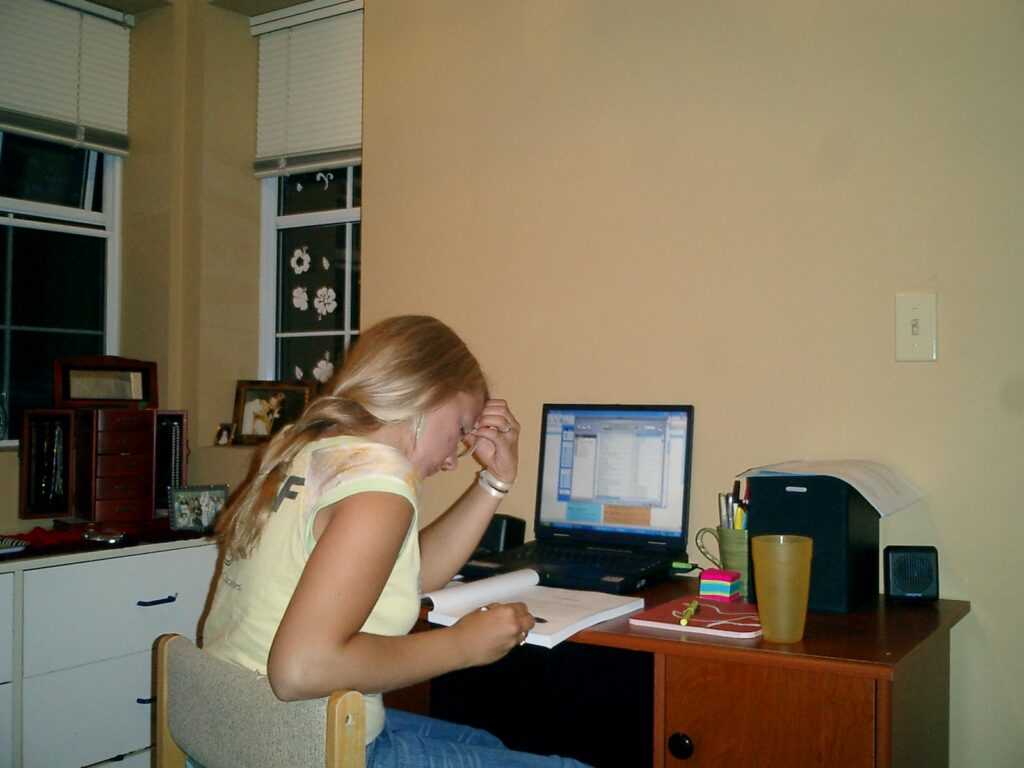
Since this school year began, students from kindergarten to college have had to cope with the impact of the COVID-19 pandemic on their education. Confined to their homes and dorm rooms, students across the nation have entered online school. After all, this is America, a nation built on lethal productivity. Taking a year off of school would be simply unthinkable.
Students are struggling — online learning isn’t easy; engagement is next to
One of the biggest difficulties of Zoom classes is the discussion. On a Zoom class, where you often can’t see or hear most of the class, there are not easy cues for when to talk. Thus, even when the professor is reduced to begging the class the participate, there is complete silence. As a humanities student who benefits greatly from discussion-style classroom settings, the barriers of online classes have been hugely disappointing.
Amidst the struggles of online classes, many students have also failed to find any leniency from teachers. Readers, I’m sure we are all familiar with the beginning-of-the-year platitudes, endless variations of:
“I understand how difficult things are for students right now. We will be taking things slowly, and please don’t hesitate to ask for help or extensions. “
And yet, even with the constant acknowledgments of how hard students have it right now, even with the promises of a more relaxed pace, students report being saddled with a workload identical to that before the pandemic — one that seems insurmountable.
Even the Campanil staff had much to report about the slack (and lack thereof) they’ve received from teachers during the pandemic. Many reported a move to partially asynchronous classes, meeting over Zoom only a few times a week. In order to compensate for the lack of face time in class, some of these professors have assigned disproportionate amounts of additional reading or written work. One student spoke of an incredible new work increase, with their class requiring them to read one 400-500 page book a week. For most students, papers, reading assignments and presentations have increased in frequency — compensating for the lack of engagement Zoom classes provide, many professors have taken it upon themselves to make up this gap by assigning more essays and writing assignments.
As for the many professors that have offered asynchronous classes or shortened classes, many of them reneged on their plans. Classes set to be 45-minute check-ins have gone over an hour and continue to run over, and other professors have decided to double the number of actual class meetings. While flexibility for professors is valuable during this complicated time, frequent changes to class schedules and workloads can be disruptive for students, especially for those who can’t easily change their course load without credit or financial aid issues. And of course, these issues are exacerbated by strict policies in class, with some professors requiring students to turn on their cameras and mics, calling out students by name when they do not comply, and prohibiting students from eating during class.
The disproportionate workload has taken its toll on students, affecting not only their mental health but their personal lives as well. An increased workload means more than just an increase in assignments and more work. It also means more screen time, with students spending virtually all day at their desks in front of their computer. This is, of course, in addition to the time students spend on screens recreationally, perhaps video calling with friends due to pandemic safety procedures. As professors have churned out difficult assignments, strict virtual participation policies and unsustainably high academic standards, students report spending more time in front of their computers at school or doing homework than with their friends, family and partners.
The unwavering standards that many students are being held to are taking an incredible toll on our mental health. COVID-19 virtual class policies have not only negatively affected grades but also weakened students’ trust in their own academic ability, sending them after a finish line that is moving further and further away. The heavy workload students currently have is unsustainable, and there is no telling how long it will be before we all crash.

